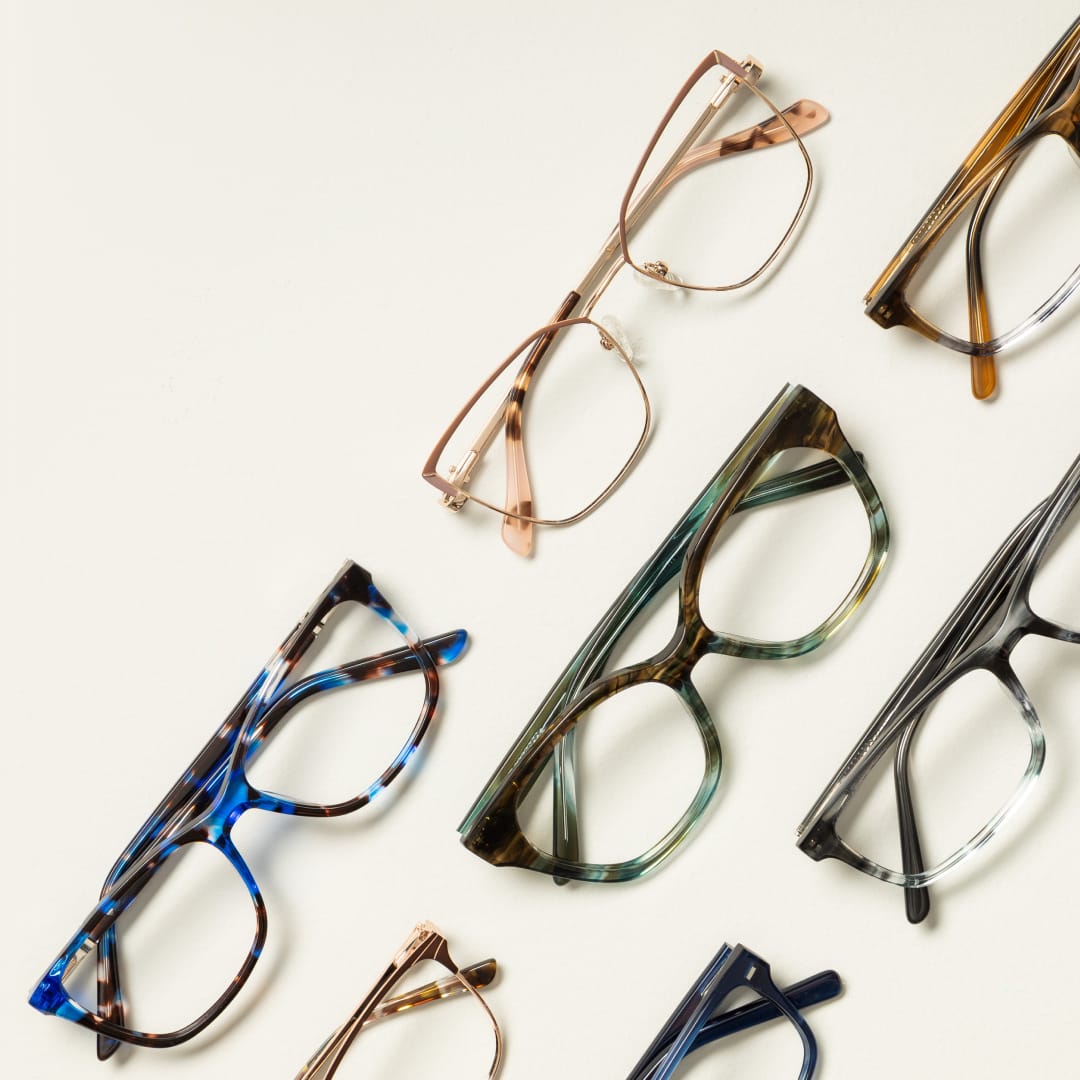Why do glasses fog up?
Eyeglasses fogging up is irritating and potentially dangerous. But why does it happen all the time? Or why does it happen sometimes but not others? Well, turns out there's a lot of science to it.
The science behind foggy glasses
The fog on your lenses is water that just got pulled out of the air and stuck to the glasses. Just like your car's windshield on a cold morning or a pitcher of lemonade on a hot afternoon, it happens when there's an abrupt shift in temperature and humidity. Some factors make this shift more pronounced, which makes the fog form faster and thicker.

The Framery at 1-800 Contacts
Get premium frames starting at $79
Shop glasses
Humidity and temperature
Air is like a sponge. It can hold a certain amount of water in it. As a rule, the warmer the air is, the more water it can hold. This is why you get chapped lips when you're skiing in cold, dry air but not when you're lounging on the warm sand at the beach. Air gets denser as it cools, which acts exactly like squeezing a sponge and wringing out the water. This causes rain when it's happening in the sky, and it's why water seems to jump out of the air onto your lenses.
Blame your face
The most reliable source of warm, moist air near your face is your own breath. So, you always have a supply of fog-making material a few inches below your glasses. This is most likely to happen when you've been talking or breathing heavily or when the air around your face is constrained for some reason, such as wearing a mask, which we all discovered around the same time in 2020.
Common times for glasses to fog up
Your glasses probably aren't permanently fogged, so obviously, this only happens some of the time. Knowing when, where, and how can help you get control of the phenomenon, so let's look at some of the most common scenarios when your glasses will get foggy.
Cold-to-warm transitions
Going from a cold-air environment to someplace warm is probably the no. 1 reason your glasses fog up. When you're someplace cold, the material of your glasses will chill down faster than the tip of your nose does. To fight it, you can warm up your glasses before they fog.
Masking up
Everybody who has tried wearing glasses and a mask has had this happen. You put everything on, breathe a sigh of relief that you're protected from germs, and bang ... foggy glasses. You can fight this by properly adjusting the metal nose crimp on the mask. If you're still getting the effect, consider letting your glasses ride just a little bit lower on your nose. That could open up airflow a bit and let some of your breath through.
Exercise
The harder you breathe, the more your breath will fog up your glasses. That's just science. Now, we're not going to tell you to avoid exercise because you want your glasses to be clear, but there's other stuff you can try. If you don't need your glasses every second, you can leave them off until your breathing is back to normal. You could also switch to contact lenses for cardio.
How to prevent glasses fogging up
We hear you thanking us for the great tips, but a question remains unanswered: Are there any products I can buy to fix this problem with less effort? Well, as it happens ... yes.
Anti-fog coating
You can get anti-fog coating as an optional upgrade for your glasses. There are two types of these: surfactants and hydrophilics. Surfactants are like soap, and they effectively make the lenses too slippery for fog to stick. Hydrophilics are like tiny sponges, which soak up the small amount of precipitation and prevent fogging entirely.
Shammies: astigmatism's best friend
If all else fails, you can just go for a shammy. That little rectangle of lint-free microfiber you carry around is great for wiping lenses clear, and it comes with the knock-on effect of helping keep your glasses clean as well as unfogged.
Fight the fog
There are lots of reasons to fight the fogging up of your glasses. It's annoying, it impairs vision, and it looks goofy when other people can see it. By taking care not to breathe onto the lenses, wiping them down sometimes, and even opting for a special coating, you can live a fulfilling and fog-free life with your glasses. Whatever kind of glasses you're interested in, the process starts with a free online eye exam, which you should totally get now.
FAQs
Can I use anti-fog products on all types of glasses?
If your eye care professional offers anti-fog coatings, you can go for those.
How often should I reapply anti-fog coatings on my glasses?
Anti-fog coatings tend to last about a year. After that, you may start to notice a little fogging that gradually gets worse until you either reapply the coating or replace your glasses.
Can I prevent glasses from fogging by adjusting the temperature of the room?
Yep. The fog forms because of differences in temperature and humidity. Eliminate those, and you shouldn't get fog.





